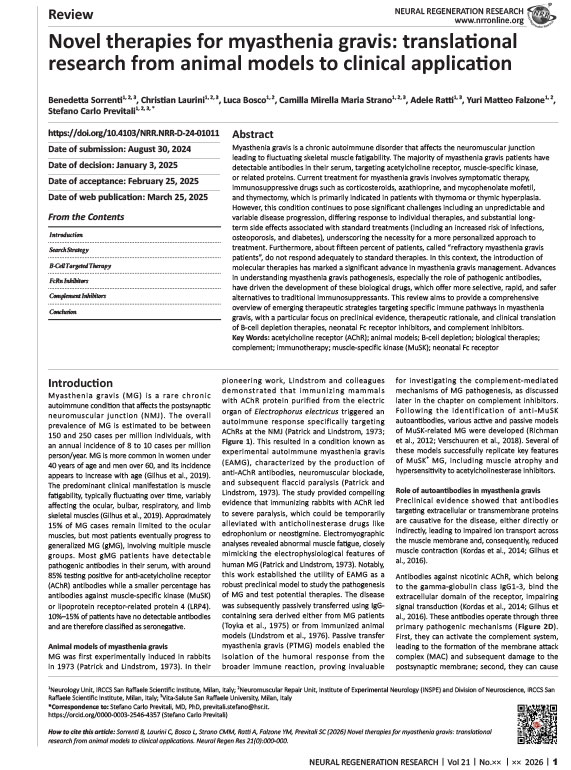Novel therapies for myasthenia gravis: translational research from animal models to clinical application
Mar-25
Abstract
Myasthenia gravis is a chronic autoimmune disorder that affects the neuromuscular junction leading to fluctuating skeletal muscle fatigability. The majority of myasthenia gravis patients have detectable antibodies in their serum, targeting acetylcholine receptor, muscle-specific kinase, or related proteins. Current treatment for myasthenia gravis involves symptomatic therapy, immunosuppressive drugs such as corticosteroids, azathioprine, and mycophenolate mofetil, and thymectomy, which is primarily indicated in patients with thymoma or thymic hyperplasia. However, this condition continues to pose significant challenges including an unpredictable and variable disease progression, differing response to individual therapies, and substantial longterm side effects associated with standard treatments (including an increased risk of infections, osteoporosis, and diabetes), underscoring the necessity for a more personalized approach to treatment. Furthermore, about fifteen percent of patients, called “refractory myasthenia gravis patients”, do not respond adequately to standard therapies. In this context, the introduction of molecular therapies has marked a significant advance in myasthenia gravis management. Advances in understanding myasthenia gravis pathogenesis, especially the role of pathogenic antibodies, have driven the development of these biological drugs, which offer more selective, rapid, and safer alternatives to traditional immunosuppressants. This review aims to provide a comprehensive overview of emerging therapeutic strategies targeting specific immune pathways in myasthenia gravis, with a particular focus on preclinical evidence, therapeutic rationale, and clinical translation of B-cell depletion therapies, neonatal Fc receptor inhibitors, and complement inhibitors.

